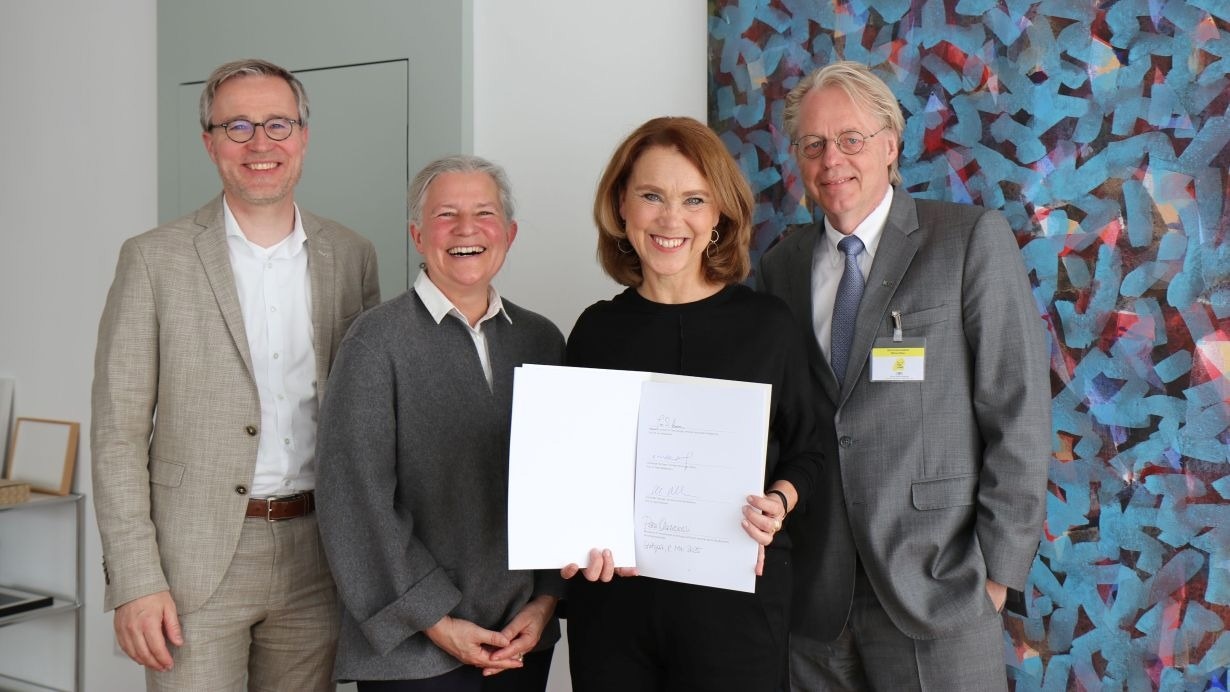A major new collaboration between top German universities aims to propel the next generation of AI leaders from doctoral research to industry breakthroughs, setting the stage for Heilbronn as a global AI talent hub.

Working together for strong AI research (from left): Professor Peter Middendorf, Rector of the University of Stuttgart, Professor Karla Pollmann, Rector of the University of Tübingen, Petra Olschowski, Minister for Science, Research, and the Arts, and Professor Jan S. Hesthaven, President of KIT, signed a Memorandum of Understanding on Tuesday, May 8, on the foundation of a state graduate center for applied artificialintelligence (LGZ). (Photo: MWK)The
Karlsruhe Institute of Technology (KIT) has joined forces with the universities of Stuttgart and Tübingen to establish a future-oriented state graduate center (LGZ) for applied artificial intelligence in Heilbronn. The signing of a Memorandum of Understanding (MoU) on May 8, 2025, marked the start of this unique project in Germany. The LGZ is designed to enhance the training of skilled workers in pioneering AI-related fields, including chip design, robotics, and cybersecurity.
This special institution's goal is to support doctoral students who conduct research at the interface between computer science, mechanical engineering, and electrical engineering. The LGZ will be established as an external location of KIT in Heilbronn and will be operated jointly with the universities of Stuttgart and Tübingen.
Goals and Vision
The LGZ aims to attract international talent for the specified pioneering fields, provide outstanding training, and facilitate their transition from science to industry and start-ups. "With the LGZ, we are setting up an innovative real-world higher education policy lab for the top talent of tomorrow," said Minister for Science, Research, and the Arts Petra Olschowski on May 16 in Stuttgart. "We are creating an experimental space with more flexible conditions to test and establish new formats for training top doctoral candidates in pioneering AI-related fields, for recruitment and for cooperation between science, industry, and start-ups. This is a great opportunity for the country."
"To fully exploit the potential of artificial intelligence, we need talented young people from all over the world who bring in new perspectives and drive ideas forward," says Professor Oliver Kraft, Vice President Research at KIT. "If we want to stay at the forefront of science and business on an international level, we need to offer excellent learning and working conditions to the brightest minds. Our educational mission is a key part of our contract with society: Research builds knowledge – our graduates create impact. That's what the LGZ stands for."
Financing and Milestones
A founding directorate is to be appointed later this year. The center is scheduled to be completed in 2029 and will then receive up to 30 million euros in annual funding from the state. Initially, € 1.4 million has been earmarked for 2025 and € 11 million for 2026. In addition to ten professors, more than 60 doctoral candidates and around 20 post-doctoral researchers will conduct research at the graduate center.